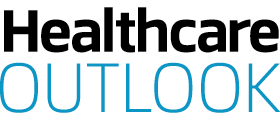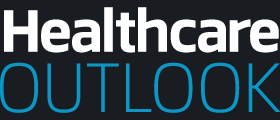The trust patients have in their healthcare providers is now so reliant on technology and data. As such, the emerging technology of the sovereign cloud is the latest tool in ensuring patient’s data protection.
Over the last few years, the way healthcare is delivered has changed dramatically and so has the importance of data safety. A recent survey by VMware found that over half of the UK public trusts the NHS to store and analyse their patient data safely, but where it’s stored remains a pressing concern.
Recent developments around generative artificial intelligence (AI) have led to new debates around privacy and trust in data, but where it is stored should be a top priority. Therefore, it’s important to consider the role of the sovereign cloud in healthcare today and how it links with patient trust.
THE EXPECTATIONS OF PATIENTS
Technology is now integral to the patient experience, with the data from every patient’s interaction with a healthcare professional now being digitally recorded in some form, including highly sensitive information.
Consequently, major cyber-attacks have had an impact on patients’ trust in the healthcare system, with NHS trusts suffering from both data breaches and cyber-attacks in recent times, such as the attack on the University of Manchester earlier this year.
Healthcare organisations are also seen as top targets by cyber attackers, so the risks facing them will only increase in the years to come. Patient data also falls within the category of ‘sensitive’ under legislation and faces heightened scrutiny from the public and regulatory bodies.
Looking at the VMware research, the majority of UK consumers believe it is important that their NHS patient data is stored in the UK. Countries that have enacted certain legislation have the right to access data hosted by providers registered in their countries, even if the data is located in another country and jurisdiction.
Thus, the complex nature of current data storage means that data can be stored in many countries with a large number of different companies. According to the Office for National Statistics (ONS), the NHS is the most trusted public service, but data forms a critical part of the trust puzzle and will continue to do so. Therefore, the use of the sovereign cloud is paramount to maintaining confidence in the years to come.

With global cyber security problems on the rise, the sovereign cloud provides an enhanced level of security with access controls and multiple layers of protection.
Darren Adcock, Senior Product Manager, Redcentric
FUTURE INNOVATIONS IN HEALTHCARE
In order to improve patient outcomes, healthcare organisations are already looking at the potential use for emerging technologies, with AI already being used by some healthcare organisations to detect diseases such as cancer.
With an ageing population and pressure on resources due to stretched public finances, technology could be the answer to some of the issues facing the sector today.
The NHS is also struggling with patient waiting list backlogs as it recovers from the COVID-19 pandemic and the need to treat chronic diseases.
However, these new opportunities also bring challenges when it comes to data with mounting concerns being expressed around the use of AI. A recent survey found that 25 percent of those surveyed opposed the NHS using AI to process their patient data, revealing the added hurdles in the area of emerging technology.
The rewards have to be balanced with the risks and every data point relates to a patient, who trusts that their privacy is maintained. For healthcare organisations, the challenge is then where and how to store that data, in a way that ultimately fosters trust with patients in a rapidly changing world.
With cyberattacks on systems frequently making the news, patients simply won’t provide necessary data if they feel that their privacy could be compromised.
HOW THE SOVREIGN CLOUD CAN HELP TO BUILD TRUST
The sovereign cloud can help to protect the most sensitive data by keeping it under sovereign control. Modern data protection legislation makes it even more important for healthcare providers to consider the use of the sovereign cloud, with 137 countries having already enacted data protection and sovereignty laws in some form, according to Accenture.
Using a sovereign cloud provider can help organisations gain more control over their information by having extra visibility and auditing functions over data. This protects it from foreign interference, especially in the face of global geopolitical tensions and new data sovereignty laws.
With global cyber security problems on the rise, the sovereign cloud provides an enhanced level of security with access controls and multiple layers of protection. For the highest levels of security, data can also be stored in air-gapped storage and protected with strong encryption.
In a world where data sovereignty laws and cyber threats are evolving, the sovereign cloud can help healthcare organisations to build trust with patients. As a result, organisations can have greater confidence in an era of technological change and patients will have more confidence in data storage and consequently in the overall healthcare experience.
Tel: 0800 983 2522


























